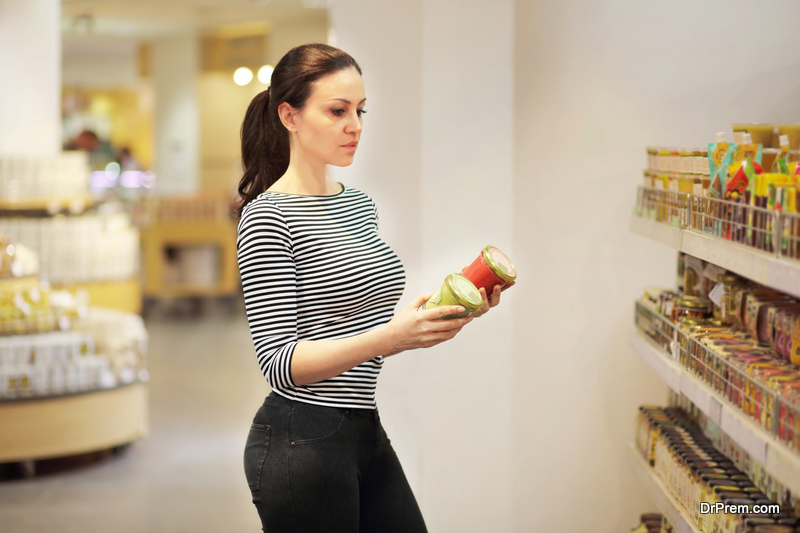For many years now, brands have gotten away by producing products which are not at all friendly to the environment. According to them, the consumers have the best intentions and express their willingness to buy eco-friendly goods, but they actually do not purchase them in the stores. More consumers are learning that sustainable products i.e. products that have environmental, economic and social benefits from sourcing of raw material to the final disposal. The cost of doing so is a little high, but now, research has shown that consumers are definitely willing to pay more for sustainable products:
Consumers willing to pay more for sustainable products
 Sustainability is no longer a topic which is sidelined by consumers and companies. The world population is aware of the need to change the methods of sourcing raw materials, the kind of raw materials, the production process as well as the disposal of the product. Sourcing of the raw material has to be sustainable for the local area/region, so that the ecological balance is maintained, and the local people do not lose their livelihood, crops, homes and surroundings.
Sustainability is no longer a topic which is sidelined by consumers and companies. The world population is aware of the need to change the methods of sourcing raw materials, the kind of raw materials, the production process as well as the disposal of the product. Sourcing of the raw material has to be sustainable for the local area/region, so that the ecological balance is maintained, and the local people do not lose their livelihood, crops, homes and surroundings.
Conventional products do not get degraded easily, filling up the landfills and turning the oceans into garbage dumps. The methods of production lead to global warming gases which have already resulted in climate change. Most people in the world are eco conscious now, and they know that their decisions matter. If they support the sustainability movement by buying green consumer products, then they are willing to do so at a premium. Consumers are therefore willing to pay more for products which are sustainable.
Why are companies manufacturing sustainable products
Manufacturing sustainable products is more expensive than conventional products, but the trend to manufacture sustainable products has been on the rise. There are several reasons why the big brands all over the world have, in recent years stepped up their green production lines. Global demand, profit, employee engagement are a few of the reasons.
Profit:
 Whatever the reason, the manufacturing of green consumer products is beneficial for the planet. And, as the eco savvy consumer is willing to pay higher prices for these products, the greener production lines are making a handsome profit for the companies.
Whatever the reason, the manufacturing of green consumer products is beneficial for the planet. And, as the eco savvy consumer is willing to pay higher prices for these products, the greener production lines are making a handsome profit for the companies.
For example, Whole Foods, one of the companies in sustainability sector, has been valued at more than a billion dollars, along with companies such as Chipotle, Natura and Tesla, which are known to be eco-friendly. Other big names which have ventured into sustainability space are GE, Toyota and Nike. All these companies together generate over 100 billion dollars in annual revenue. So the high profits are perhaps one of the major reasons why the consumer goods giants have gone the sustainable way.
Growth:
 Another major factor is growth. Companies are not only just making money, but they are also motivated by the growth of the market share, by becoming sustainable. For instance, Unilever has seen the growth of their 16 sustainable brands 50% faster than their other brands. These brands were responsible for 60% growth of the company in 2016.
Another major factor is growth. Companies are not only just making money, but they are also motivated by the growth of the market share, by becoming sustainable. For instance, Unilever has seen the growth of their 16 sustainable brands 50% faster than their other brands. These brands were responsible for 60% growth of the company in 2016.
According to a research done by NYU Stern Center for Sustainable Business, which looked into the US consumers’ purchase of packaged goods (CPG), using the data provided by IRI, it was found that 50% of market growth from 2013-2018 was from sustainable markets. The research was done by scanning the bar codes at retail counters in drug, dollar, mass retailers and food stores. More than 36 categories were taken into account, and over 71,000 SKUs which accounted for the CPG dollar sales in the five year period.
Eco-friendly packaging was one of the main aspects of the marketing of sustainable products which drew the attention of consumers and those with sustainability claim on the packaging delivered almost 114 billion dollars in sales. Products which were marked as sustainable showed a growth of 5.6 times than others. In fact, in 90% of CPG categories, sustainably marketed goods grew faster than the conventional counterparts.
Product categories which have most sustainable products
 Toilet tissues, milk, facial tissues, yogurt, salty snacks, coffee as well as juices in glass bottles had the highest market share, whereas floor cleaner, laundry care and candies had less than 5% share.
Toilet tissues, milk, facial tissues, yogurt, salty snacks, coffee as well as juices in glass bottles had the highest market share, whereas floor cleaner, laundry care and candies had less than 5% share.
It was found that product categories which required a high degree of efficiency and affectivity, such as sanitary napkins and laundry care had lower number of sustainable products. This is probably because customers are still preferring efficacy over sustainability, as they are apprehensive of a quality trade-off. But then again, these categories too seem to be catching up, as laundry care and sanitary napkins, with eco-friendly packaging and other environment aspects, showed the highest growth in sustainable products, at about 150%.
What do the findings indicate?
 These findings go to show that consumers are voicing their opinion with the power of the dollar, pound or rupee. They no longer are willing to accept that sustainable production, marketing and disposal is too expensive and therefore not viable. Consumers are willing to spend extra to support sustainable brands and phase out unsustainable ones.
These findings go to show that consumers are voicing their opinion with the power of the dollar, pound or rupee. They no longer are willing to accept that sustainable production, marketing and disposal is too expensive and therefore not viable. Consumers are willing to spend extra to support sustainable brands and phase out unsustainable ones.
The companies such as Unilever and PepsiCo who understand this and have gone ahead with a sustainable policy, even without the support of their investor, will be able to survive in the future. These companies will stay ahead of the race, unlike Kraft Heinz who is using cost-cutting as a policy and not seeing any good results.
The research indicates that transformations of legacy products are necessary to stay relevant in the market which is shifting towards sustainability. The bigger chains are also snapping up smaller brands which have a loyal following, such as Sundial Brands, Pukka Herbs and so on.
Corporate leaders should listen to the vote of the people rather than their brand managers who claim that there is no market for sustainability. Investors too should support the companies making investments required for the change.
Why sustainability is crucial for the FMCG sector now?
 Veganism is no longer a fad, but has been adopted by millions of people worldwide. Vegans and other eco conscious people look for and pay more for product which reflect their lifestyle. The change in consumer trends have seen huge FMCG companies such as Coca Cola, Nestle, P&G scrambling to repackage their products, removing plastic as far as possible.
Veganism is no longer a fad, but has been adopted by millions of people worldwide. Vegans and other eco conscious people look for and pay more for product which reflect their lifestyle. The change in consumer trends have seen huge FMCG companies such as Coca Cola, Nestle, P&G scrambling to repackage their products, removing plastic as far as possible.
Government policies have also become more eco friendly, and they are placing restrictions on plastic packaging as well as labeling. Recycled products would help to reduce the risks from climate change as well as make a change in the value chain. FMCGs have a major role to play in curbing GHG emissions and their challenge lies in procuring raw material and production process. The shift to eco friendly production process and using recycled products would go a long way to conserve depleted raw material and reuse materials. This would also ensure the longevity of their brands, as more and more consumers make the change to buying sustainable products.
As mentioned earlier, those FMCGs which have developed vegan personal care products are reaping the benefits. Companies are also working to work with natural and biodegradable ingredients instead of petrochemicals. Many of the companies are researching on biodegradable plastic and the recycling infrastructure.
British, German, Spanish, French, Dutch consumers display increased interest in sustainable apparel
 A recent study concluded that British consumers too, approx 43% of them, are willing to pay premium for sustainable apparel. 90% are also willing to buy products which are labeled as ‘100% recyclable’, or ‘upcycled’. 62% Britishers say that they would never purchase a brand which they found to be detrimental to the ecology.
A recent study concluded that British consumers too, approx 43% of them, are willing to pay premium for sustainable apparel. 90% are also willing to buy products which are labeled as ‘100% recyclable’, or ‘upcycled’. 62% Britishers say that they would never purchase a brand which they found to be detrimental to the ecology.
The demand for green clothing has been found to be high in London, with 51% of people willing to buy and pay more for recycled apparel. The research was part of Oxfam’s second hand September campaign, encouraging customers to go for pre-owned clothing. Other findings were that only 20% of customers buy sustainable products, though 69% would buy green products if there was detailed information of environmental impact of the product.
Retailers from France, German, Italy, Spain and Netherlands are also showing interest in sustainable products as there are more and more consumers asking for these kinds of products. People are preferring products which treat workers ethically and have a minimum impact on the environment.
Brands as well as retailers can earn the trust of eco conscious consumers with transparency and providing clear information as well as the sustainable aspects of the product.
Fast fashion brands and retailers who choose not to reveal the impact of their products on the environment, may lose out on customers in the future. Being sustainable is the way forward.
The physical risk of climate change has appeared and cannot be ignored. The heat stress as well as water scarcity and can disrupt agricultural chains of supply and cause uncertainty of prices for food and beverage companies and personal/homecare companies. Therefore the companies have to find sustainable processes of production, which use less water, and make products which require less water to be used.



